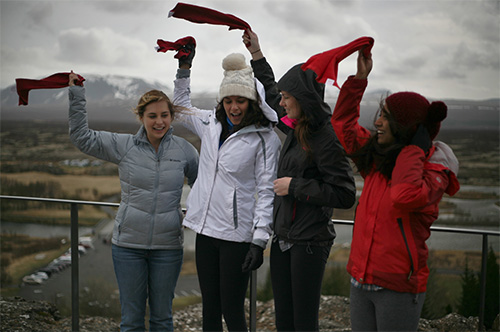Ogden News
WKU's Environmental, Sustainability, and Geographic Studies BS offers unique customization
- Lacey DiPietro-Bell
- Friday, April 21st, 2023

In Western Kentucky University’s commitment to continuing academic innovation, Ogden College of Science and Engineering’s Department of Earth, Environmental, and Atmospheric Sciences (EEAS) has created a new program allowing for a Bachelor of Science in Environmental, Sustainability, and Geographic Studies (ESGS) which officially launched in the Fall of 2021.
“The unique feature of the ESGS program is that it has a lot of customization to get each student to their individual career goal,” Dr. Leslie North, program coordinator, said.
The program, which currently has over 75 students enrolled, prepares students for career paths within the broad spectrum of environment and sustainability fields. A wide variety of classes allows the students to explore the diversity of the discipline and find a focus they are the most passionate about to achieve their career-related goals.
EEAS is a diverse department, and the new ESGS major allows its students the unique ability to take courses outside their immediate program (like those in meteorology, geology, emergency management disaster science, and geographic information science to name a few) and count them toward their major, allowing them to become more well-rounded experts in the environment and sustainability fields.
“I took an environmental and sustainability lab as a colonnade course, and I fell in love with it,” Kara Brunot, a senior majoring in the program and Mahurin Honors College student, said. “After talking to faculty, I knew I needed to join the program.”
Laboratory opportunities and field-based experiences are highly encouraged throughout the program. EEAS has four of WKU’s Applied Research and Technology Program (ARTP) research centers, giving students access to equipment, software, and other resources. Additionally, through long-standing industrial and governmental partnerships, students get the opportunity to work on real-world experiences through contracts, grants, and internships.
There are also four different student organizations directly connected to the ESGS program giving students even more applied learning opportunities such as working together on sustainability projects, participating in field trips, hearing from guest speakers, and going on cave expeditions.
“These clubs have helped me find other people who share the same interests and passions as me,” Brunot said. Brunot is involved in both GreenToppers and WaterPros. “They have provided me with opportunities to meet community members in the field, go to conferences, and gain real-world experiences.”
Brunot has also been able to gain real-world experience having secured a job as a GIS technician for the Planning, Design, and Construction department on WKU’s campus. She has even received a Faculty-Undergraduate Student Engagement (FUSE) grant allowing her to apply the skills she’s learning to projects with her advisor.
“Being able to interact with all the amazing faculty has been the highlight of this program. They are always encouraging of my abilities and push me to try anything and everything,” Brunot said. “Because of the amazing mentorship I’ve received, I applied for and got accepted into the JUMP program where I get to continue my studies and develop a graduate-level research project.”
While many graduates find themselves seeking full-time employment in careers in the vast and fast-growing discipline of environment and sustainability immediately upon graduation, it is also common to see our graduates continue their education with a Master’s degree and even a Ph.D. Our graduates have found that doing so allows them more opportunities to move up in the companies that they’re employed with after graduation.
For more information about the BS in Environmental, Sustainability, and Geographic Studies at WKU, visit https://www.wku.edu/engs.
Some of the links on this page may require additional software to view.

